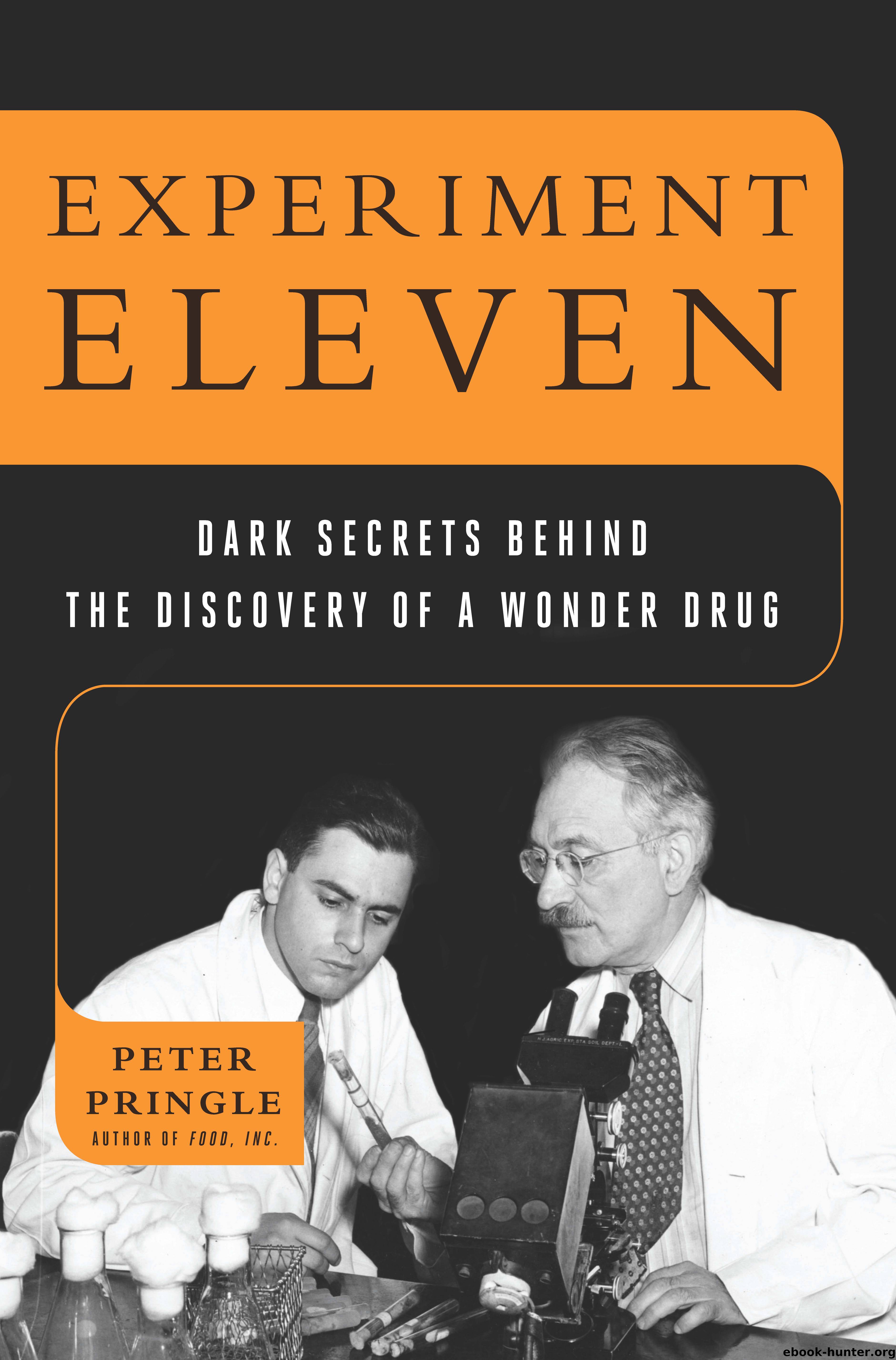Experiment Eleven by Peter Pringle

Author:Peter Pringle
Language: eng
Format: epub
Publisher: Walker Books
Published: 2012-12-26T16:00:00+00:00
16 • The Road to Court
JEROME EISENBERG liked the Schatz case. As a trial lawyer, he was drawn to the “David and Goliath” aspect, as he crudely put it. Libert warned him that Schatz had no money, but Eisenberg agreed to take the case on contingency—if Schatz passed his legal litmus test. He wanted to evaluate Schatz’s credibility, appearance, personal history, good faith, social life—no “extra-marital affairs”? It was the kind of thing he usually asked his clients. Most important, he wanted to make sure Schatz would not be “taken for a communist.” Vivian had worked for civil rights and left-wing causes; although Schatz’s sympathies lay in that direction, he had never joined any groups. In the face of demands that professors take loyalty oaths, Rutgers “blew with the wind. They were conservative when it was fashionable and liberal when the pendulum swung the other way,” Hubert Lechevalier, one of Dr. Waksman’s graduate students, later recalled. It paid to be prudent. If the Rutgers authorities had the slightest suspicion that Schatz was a “fellow traveler, red, pink or otherwise,” Eisenberg said, the case might be lost on that count alone.
On February 13, 1950, Schatz spent twelve hours with Eisenberg in his Newark office. He gave the lawyer a quick course in how to find an antibiotic in a thimbleful of farmyard soil, and Eisenberg outlined the case he thought he could bring. He would charge Waksman with fraud and deceit for hiding the money he had received from the patent. And he would include the Rutgers Research and Endowment Foundation in the suit. At the end of the session, Eisenberg was satisfied that Schatz would make a “most credible and intelligent” witness. “His honesty was evident in his appearance and candor. He would answer questions truthfully and responsively; he had no skeletons in his closet.”
However, there were tricky legal issues that made this more complicated than Eisenberg’s previous civil cases. For example, who had originally held the patent rights? Did Schatz have rights as a student in a college laboratory whose research was part of his course for a doctorate? Did Waksman have rights as a member of the college faculty? If Schatz was paid a tiny wage, in addition to his stipend, by the college for looking after the plants in the greenhouse, not for his lab work, did the “shop rights” doctrine apply, giving rights to the employer? Was Schatz obligated to assign patent rights to the college that employed him?
Like a good trial lawyer, Eisenberg examined all angles, even the improbable ones, such as the question of fraud perpetrated on the U.S. Patent Office. If it could be proved that Schatz was the lone discoverer in patent law, and that Waksman had no part in it, then the patent itself might be void, a matter that would have to be decided in federal court. If a federal court held the patent void, who would then be entitled to claim the royalties already paid to the Rutgers Research
Download
This site does not store any files on its server. We only index and link to content provided by other sites. Please contact the content providers to delete copyright contents if any and email us, we'll remove relevant links or contents immediately.
| Electron Microscopes & Microscopy | Experiments & Projects |
| Measurement | Microscopes & Microsocopy |
| Scientific Instruments | Telescopes |
| Time | Methodology & Statistics |
Hands-On Genetic Algorithms with Python by Eyal Wirsansky (2020) by Unknown(4097)
Thing Explainer by Randall Munroe(3925)
The Elements by Theodore Gray(3039)
The Meaning of it All by Richard Feynman(2334)
Make by Mike Westerfield(2314)
Every Tool's a Hammer by Adam Savage(1924)
Science Experiments You Can Eat by Vicki Cobb(1860)
The Perfectionists by Sara Shepard(1813)
Martin Gardner's Science Magic by Martin Gardner(1715)
Raspberry Pi Electronics Projects for the Evil Genius (Tab) by Norris Donald & Norris Donald(1693)
Elephants on Acid by Boese Alex(1590)
Elephants on Acid: And Other Bizarre Experiments by Alex Boese(1580)
The Perfectionists by Simon Winchester(1577)
Handbook of Modern Sensors by Jacob Fraden(1566)
Synchrotron Light Sources and Free-Electron Lasers by Eberhard J. Jaeschke Shaukat Khan Jochen R. Schneider & Jerome B. Hastings(1543)
Tesla by Carlson W. Bernard(1511)
The Science of Food by Marty Jopson(1464)
125 Physics Projects for the Evil Genius by Silver Jerry(1443)
The Meaning Of It All by Richard P. Feynman(1434)
